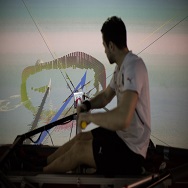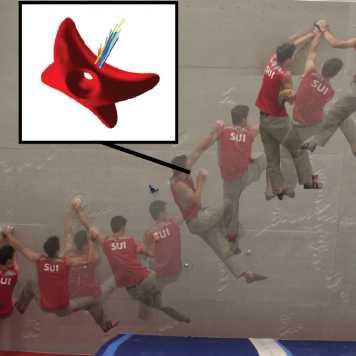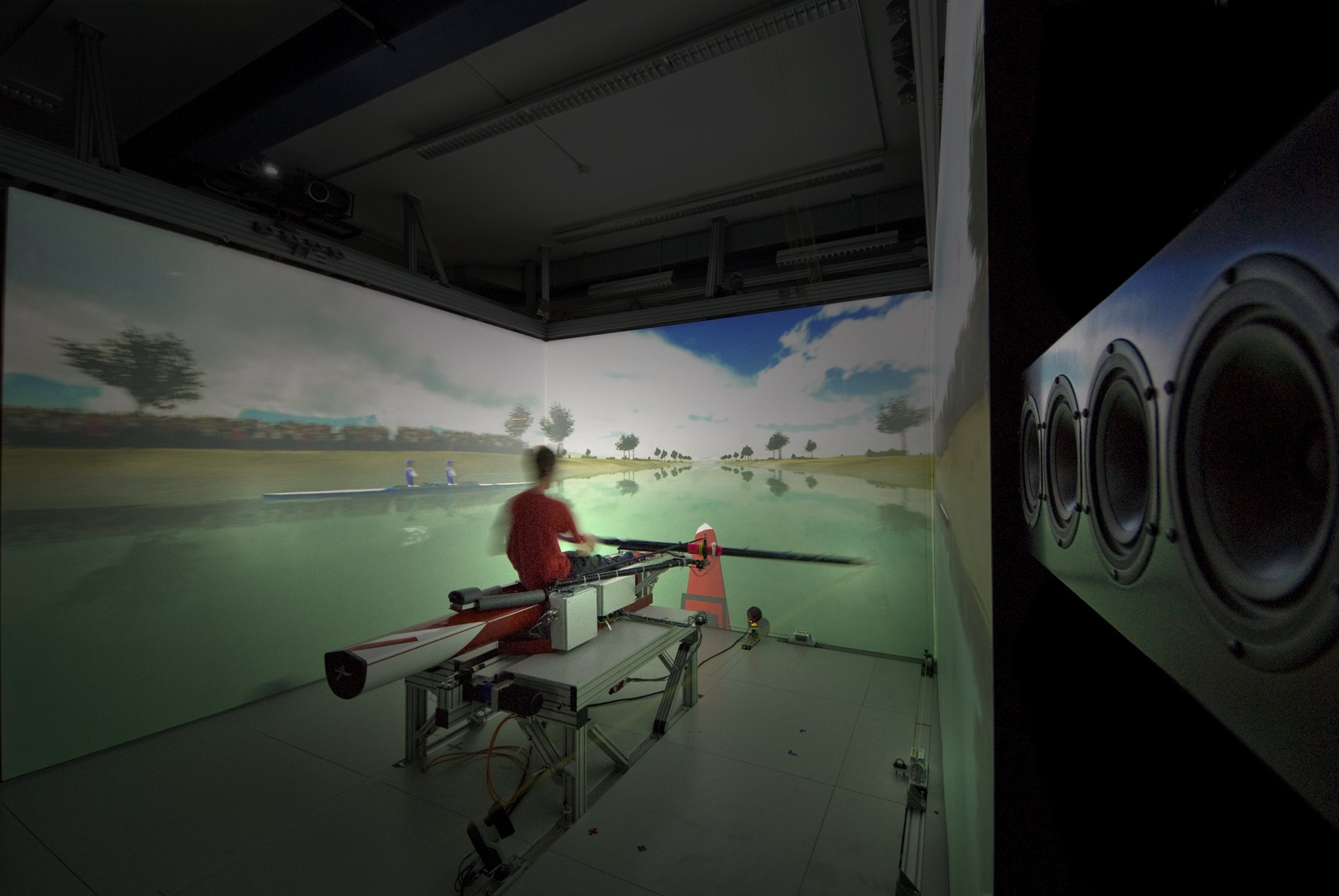Sports Engineering
The combination of knowledge of different engineering disciplines with an understanding of human movement sciences enables new training strategies and a comprehensive analysis of sports performance. Thus, we elaborate (i) robot-aided trainings and multimodal feedback strategies addressing different skill levels, and develop (ii) sports-specific measurement technology for performance analysis.
Contact
chevron_right Dr. Peter WolfWe assess human performance and motor learning in real-life sport tasks by in-house developed sensor technologies that enable sport-specific measurements of interaction forces and kinematics. We have established concurrent auditory, haptic, and visual feedback strategies and work on fully automated adaptation of them as well as of their automated switching. Another focus is on technology-based training equipment for competitive and amateur athletes.
Subprojects
Augmented Multiphase Learning

In this project, we investigate the effectiveness of augmented feedback modalities and modulation of task conditions to support multiphase learning of real-life, complex tasks. Effective methods for the motor learning of novice and skilled humans are studied for various classes of tasks. For this project, different robots are used to render manifold task characteristics and conditions. When appropriate feedback modalities and designs are found for the successful learning for distinct skill levels and task categories, trainees can be supported from novice to an expert level along the multiphase learning process of a complex movement.
Performance Analysis in Climbing

Climbing is a fast growing competitive and recreational sport, attracting athletes of different age groups and with different aims who train regularly in an increasing number of indoor climbing gyms. Despite of the popularity of climbing, research on biomechanical aspects of climbing such as the contact forces is still in its infancy. A comprehensive analysis of the contact forces would help to deduce characteristics of successful climbing, to monitor performance development, and to assess the impact of training interventions.

